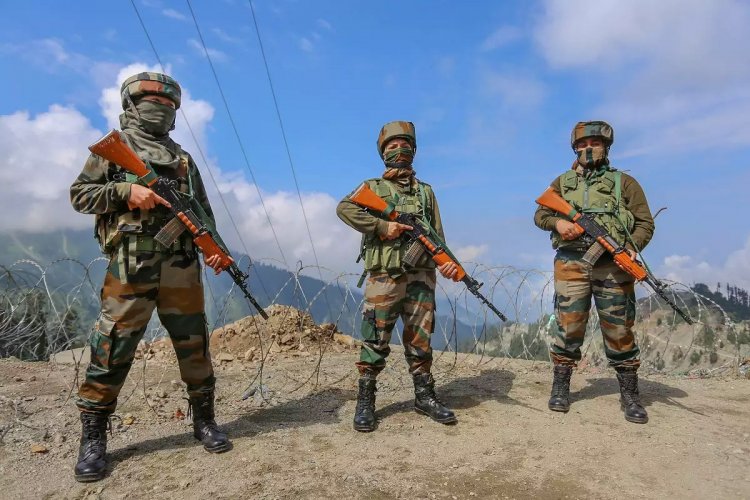Bureaucracy Undermining Preparedness
Asia News Agency

Addressing the ‘Rashtriya Raksha University’ (Central University and an Institute of National Importance located in Gandhinagar, Gujarat) last month, the ex-army chief, General M M Naravane stated, “Whenever we talk about the armed forces, and whenever we talk about investments and expenditures made for the armed forces, we should see this as an investment – an investment on which you get full returns, and it should not be seen as a burden on the economy.” He also mentioned that whenever there was a national security crisis the economy suffered, and added, “avoiding such kinds of shock can only happen if the armed forces of the country are strong.”
General Naravane’s words, writes Harsha Kakar (retired Major-General of the Indian Army) “were a cry to the government to listen to the forces, and stop pushing illogical schemes without assessment and consultation…..
“Service HQs have been compelled, due to a lack of funds to utilize equipment which should have been discarded decades ago, MIG 21 aircraft and Cheetah helicopters being examples. Both have been exploited beyond their shelf lives but cannot be discarded as replacements are slow. Modernization continues at a crawl……While funds recede, threats increase.”
‘Future wars would be in the Grey Zone’?: There is a belief amongst policymakers in Delhi, writes Kakar “that future wars would be in the Grey Zone. Operations, if any, would be limited in scope, hence manpower can be reduced…..
“The reality is that Grey Zone warfare is perpetually ongoing. It would become predominant only when the adversary realizes that gaining claimed objectives by physical actions is impossible…..” Further, “despite alliances and partnerships, the nation would have to handle its security problems alone. The most that allies and partners would offer is sympathy and criticism of the adversary, none of which has any impact on the battlefield. Hence, our armed forces must possess capabilities to win wars when launched by the enemy and to deter its attempts at misadventure by possessing requisite power……
“For achieving this, the armed forces need trained and motivated manpower. Currently, there are multiple schemes being pushed by protected bureaucratic elements, after obtaining approval of the national leadership, without consultation of service HQs, for curtailing manpower as also reducing salaries and pensions by various schemes. While these may appear logical to a non-military mind, they have inherent shortcomings impacting defence preparedness for which views of service HQs are paramount….”
















